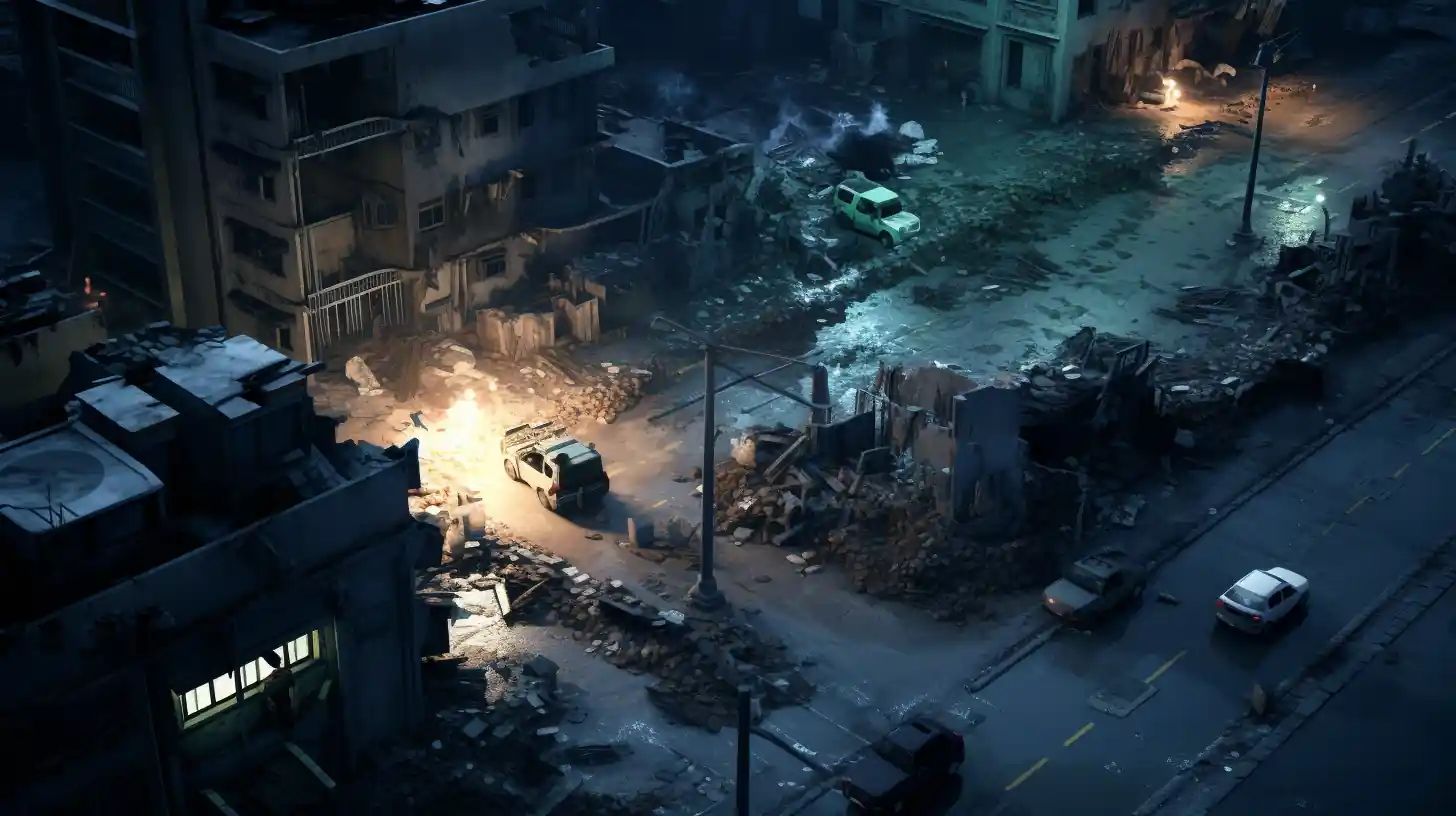All that Glitters ...
They were probably as desperate for a home run as we were for dollar.

What do Zombies and Spaceships have in common?
Bugger all. But that's the point.
I mean, we're a Sci-fi house here for sure, just checkout our projects.
It's like a galactic monument.
But you know, we tried to get some of our Scifi titles funded and we were met with blank expressions. Not everyone gets it.
When making a computer game there are effectively two sales strategies:
- Appeal to the niche
- Stack it high and sell it cheap
With Shallow Space we appealed to the niche, being Real Time Strategy we appealed to another niche - a niche of a niche, some might describe that as masochistic.
But being honest with you, the strategy was wildly successful given what was on display.
But how? Why even?
I feel like the type of people who are attracted to niche games are the type to seek them out which worked to our advantage. But at the same time, the Sci-fi crowd can be snobby and difficult to convince.
Just the facts!
I guess we'll break it down properly when we get to the postmortem, but glossy presentation and marketing persistence aside, the absence of alternatives also likely had a lot to do with it.
You see at the time, no other studio would touch the RTS genre.
They just wouldn't go near it.
Age of Empires 4? Nope.
Homeworld 3? Not a whisper.
Nexus: The Jupiter Incident 2? Don't make me cry now.
As for sci-fi? Back then it was hell on Earth, we hadn't even seen a fresh Star Trek since Enterprise and we all know how that went down.
Scifi was brown bread dead, and Real Time Strategy was even more dead(er).

So if there's a supplementary lesson to be learned there it's about timing.
...
It was easy to understand why it was a bad five or so years for Sci-fi.
Social media was at peak adoption. Smartphone use had long become ubiquitous. The very things that were meant to give us more time were somehow stealing time from us.
I would describe it as the midpoint in the zombification of mankind.
It was all selfies, reality TV and The Sims 4 expansion packs.
Can't knock it, I played various iterations of The Sims, wasn't my thing but I could see why people loved it.
Nobody had the attention span for old fashioned games.
So it's no surprise that most publishers we put the game in front of reacted to it like a wet fart. There were a few sniffles. A few of them even took in a lung full, but in truth they were probably as desperate for a home run as we were for dollar.
Fresh out of money and effort I tossed Shallow Space unceremoniously over my left shoulder. I would always go back to it but I just couldn't cope with the failure at that time, I was burnt out, I couldn't even look at it.
I needed to do something else for my sanities sake.
After a short break I decided it was time to experiment with scenario two. Stack it high and sell it cheap. So I started to look at what was trending and it was zombies.
I'm not talking about social media addicts here, I'm talking about the undead.
I didn't get it, so I watched all of 'The Walking Dead' and then I kinda got it.

The message? Violence sells. Big time.
Especially in the United States and they will be your number one customer in both scenarios one and two. Now that's not presumptive, assumptive or judgemental.
It's a material fact.
Now of course, create a game where you're mowing down people in a shopping mall with a Gatling gun and it'll be in extremely bad taste.
But what if those people were undead horde?
Well that's fair game.
...
To stack it high we had to explore the absurd, we had to tickle humanities penchant for violence and make fun out of that.
Zombies and ragdoll physics go hand-in-hand, players like to see them dismembered, flying through the air. So do publishers and investors because they can relate to that.
Few people can relate to spaceships floating around with 'pew pew' lasers.
Don't ask me, I don't make the rules.
So we had an attempt at that with Zombie Barricades.
It was an ol' fashioned poke at a multiplayer Role Playing Game that incorporated a physics engine and the construction of forts ...
... and I tell you, that game was every bit as fun as it looked.
Finally we made a fun game!
Spot the immediate problem? Yep, yet again, possibly too ambitious.
Also we actually tried to run Unity3D in the cloud, which was a frankly laughable exercise which is well deserving of a rant filed under insanity.
Zombie Barricades pretty much ended up as a complete game, inventory management, skills system - the works. But some of this projects issues were similar to that with Shallow Space because I hadn't bothered to step back and learn from the failings.
“Those who cannot remember the past are condemned to repeat it.”
George Santayana, The Life of Reason, 1905
That mantra should be printed above the entrance to every school. It's a lesson so important it trumps even the science's. It's a lesson so obvious it is easily forgotten.
...
No publisher or investor wants to pickup just one game anymore.
We need to come at them with a broad basket of ideas and contacts. The options need to be sprayed at them like a broken card shuffler; let them find the golden ace, dust it off, hold it up to the light.
They need to be in shock at the sheer scale of the opportunity in front of them.
Truth is that by now I might admit there's a smidgen of talent over here but I clearly don't know what's good for me. Perhaps even for us as a company.
Time to think about inviting the opinion of those in the know.
We live, we learn, we'll get there ...

